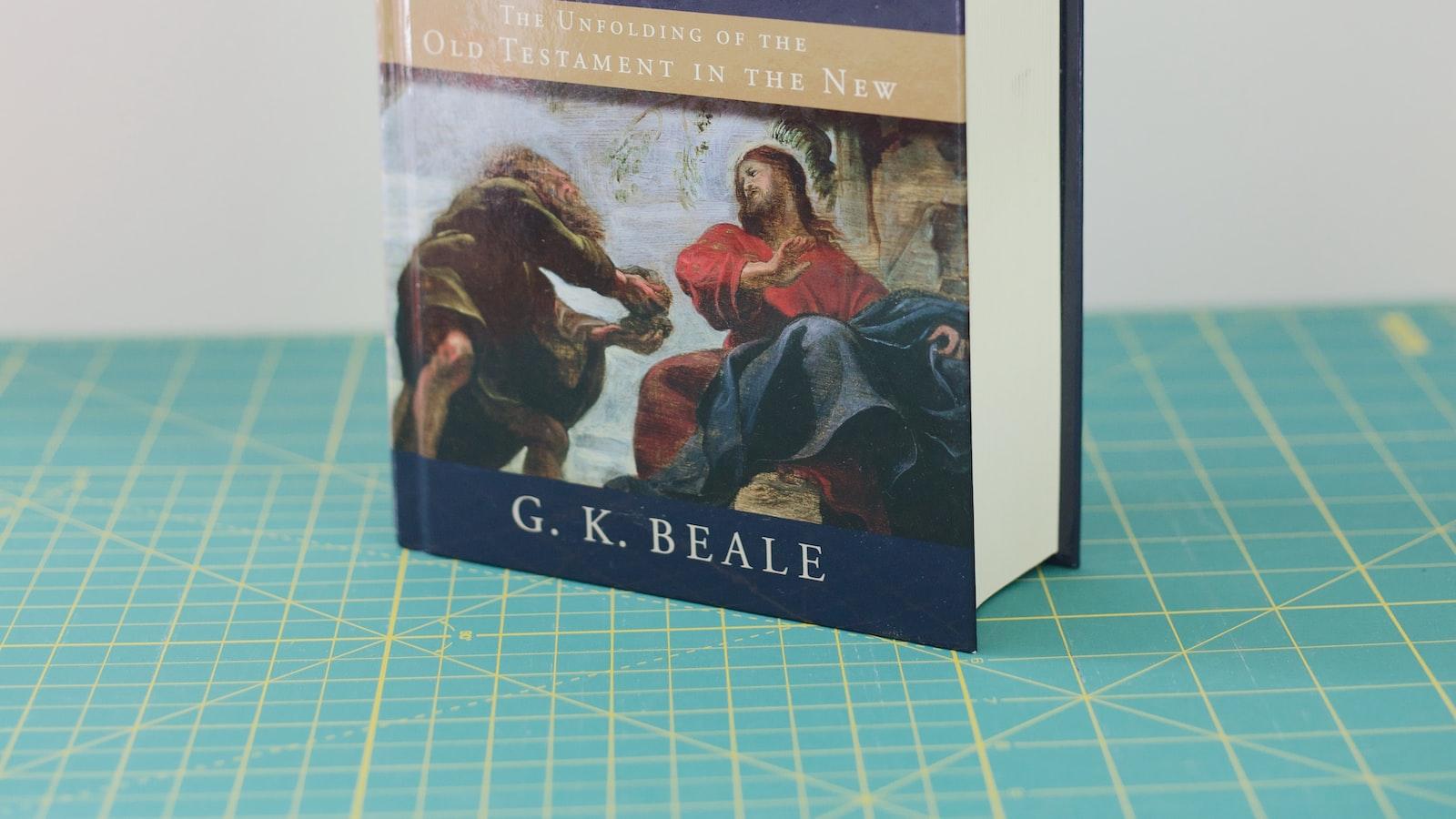Hey there! Have you ever wondered about the biblical meaning of Jordan? Well, you’ve come to the right place! In this article, we’re going to delve into the significance behind the term "Jordan" in the Bible. So, get ready to uncover some fascinating insights as we explore the hidden depths of its biblical meaning. Let’s jump right in!
1. The Historical Significance of the Jordan River in the Bible
The Jordan River holds immense historical significance in the Bible, woven into the tapestry of stories and events that shaped the faith of millions. As the setting for various significant events and miracles, the river serves as a symbol of both divine intervention and spiritual transformation.
The Crossing of the Jordan River: One of the most well-known biblical accounts involving the Jordan River is the Israelites’ crossing into the Promised Land under the leadership of Joshua. Just as the Red Sea parted for the Israelites during their escape from Egypt, the Jordan River miraculously stopped flowing when the priests carrying the Ark of the Covenant stepped into the water. This symbolized God’s faithfulness and fulfilled the promise made to Abraham, Isaac, and Jacob.
John the Baptist and Jesus: The Jordan River is also significant in the New Testament, particularly during the ministry of John the Baptist and the baptism of Jesus. John baptized multitudes of people in the Jordan River, calling them to repentance and preparing the way for the coming of the Messiah. Jesus himself was baptized by John, further emphasizing the importance of the river in the process of spiritual cleansing and renewal.
Miraculous Healing: The Jordan River is associated with numerous miraculous healing accounts in the Bible. In 2 Kings, the prophet Elisha instructed Naaman, a captain in the Syrian army, to bathe in the Jordan River seven times to be healed of leprosy. Reluctant at first, Naaman eventually followed the prophet’s instructions and was completely healed. This miraculous event highlights the river’s transformative power and its connection to divine healing.
| Significance | Description |
|---|---|
| Miraculous Intervention | The Jordan River served as a backdrop for divine interventions throughout biblical history, reinforcing God’s power and presence. |
| Symbol of Transition | The river represents the transition from slavery and bondage to freedom and promise, both physically and spiritually. |
| Rebirth and Renewal | Through baptism and notable healing accounts, the Jordan River symbolizes rebirth, renewal, and the washing away of sins. |
| Continuity of Faith | From the times of the Old Testament to the New Testament, the Jordan River serves as a link that binds the stories and prophecies of the Bible together. |
The biblical meaning of the Jordan River extends far beyond its physical presence. It represents a spiritual journey, a symbol of God’s faithfulness, and a testament to the transformative power of divine intervention. This sacred river continues to inspire and resonate with believers, reminding them of the historical significance it holds within the pages of the Bible.

2. Understanding the Symbolism of the Jordan River in Biblical Stories
The Jordan River holds significant symbolism in various biblical stories, serving as a powerful metaphor for a range of spiritual concepts. These narratives provide us with deeper insights into the importance and significance of this ancient river in the biblical context.
1. Passage into the Promised Land: One of the most well-known examples of the Jordan River’s symbolism is found in the story of the Israelites’ entrance into the Promised Land. When Moses led the Israelites out of Egypt, the Jordan River served as a significant barrier they had to cross before reaching their destination. Crossing the river symbolized a transition from slavery and bondage into freedom and fulfillment of God’s promise. By passing through the waters, the Israelites not only physically entered the land, but they also spiritually entered into a new era of blessings and divine favor.
2. Baptism and Spiritual Cleansing: In the New Testament, the Jordan River takes on another layer of symbolism through the story of Jesus’ baptism. The Gospels describe how Jesus was baptized by John the Baptist in this river. His immersion in the waters of the Jordan represented a powerful act of surrender and purity. Just as John baptized Jesus, Christian baptism symbolizes purification, repentance, and initiation into a new life in Christ. The Jordan River serves as a visual representation of the cleansing and transformative power of baptism.
3. Healing and Miracles: Throughout the Bible, the Jordan River is associated with healing and miracles. The story of Naaman the leper is an example of this symbolism. In 2 Kings, Naaman was instructed by the prophet Elisha to dip himself seven times in the Jordan to be healed. The Jordan River became a source of supernatural restoration and redemption. This narrative highlights the faith required to experience divine healing, emphasizing the significance of submitting to God’s instructions even when they may seem unconventional or illogical.
4. Separation and Crossing Boundaries: The Jordan River is frequently used to symbolize a division between different realms or stages of existence. In the Old Testament, the river acts as a boundary between the wilderness and the Promised Land. In the New Testament, it symbolizes the divide between the earthly realm and the heavenly realm. The Jordan represents transitions, metaphorically representing the journey from one state of being to another, from the physical to the spiritual. It reminds believers of the need to transcend worldly limitations and strive for higher spiritual aspirations.

3. Unique Religious Practices Associated with the Jordan River
The Jordan River holds immense significance in biblical history and is associated with various unique religious practices. These practices not only reflect the religious beliefs of the followers, but also emphasize the sanctity and importance of this holy river in religious traditions.
One of the most prominent religious practices associated with the Jordan River is the baptism of Jesus Christ. According to the New Testament, Jesus was baptized by John the Baptist in the Jordan River, marking the beginning of his public ministry. This event is considered a pivotal moment in Christianity and is often reenacted by believers who visit the river. Many pilgrims choose to be baptized in the same waters, symbolizing a spiritual rebirth and affirming their faith.
In addition to baptism, another significant practice linked to the Jordan River is the seeking of healing. It is believed that the river possesses unique healing properties, and numerous individuals with various ailments travel to its banks in hopes of finding relief. The Jordan River has become a popular destination for people seeking physical, mental, and spiritual healing, with pilgrims immersing themselves in its waters or collecting small vials of water to take back home.
Furthermore, the Jordan River is also connected to the practice of pilgrimage. Many people embark on a journey to the river as part of their religious pilgrimage, seeking a deeper connection to their faith and a sense of spiritual enlightenment. Pilgrims traditionally walk along the banks of the river, exploring its historical and religious sites, and engaging in prayer and meditation. The pilgrimage to the Jordan River provides an opportunity for believers to reflect, renew their commitment to their faith, and draw closer to the divine.

4. Lesser-Known Biblical Narratives and Events Involving the Jordan River
While the Jordan River is famously associated with significant events like the parting of the waters by the prophet Elijah and the baptism of Jesus Christ, there are other captivating biblical narratives involving this historic river that often go unnoticed. These lesser-known stories shed light on the spiritual significance and symbolism of the Jordan River throughout the Scriptures.
The Miraculous Crossing of the Israelites
One of the most awe-inspiring accounts involving the Jordan River is the miraculous crossing by the Israelites into the Promised Land. Just as God had miraculously parted the Red Sea for their ancestors, He once again demonstrated His power by causing the Jordan River to cease flowing, allowing the Israelites to safely pass through on dry ground. This event symbolizes God’s faithfulness, provision, and His fulfillment of His promises to His people.
The Healing Power of the Jordan Waters
The Jordan River is also closely associated with miraculous healings in the Bible. In the story of Naaman, a commander in the Syrian army, he was cured of his leprosy by following the instructions of the prophet Elisha. Naaman, upon submerging himself in the waters of the Jordan River as instructed, emerged with perfectly restored skin. This account serves as a powerful reminder of the transformative and purifying nature of God’s healing presence.
The Remarkable Ministry of John the Baptist
John the Baptist’s ministry in the wilderness along the banks of the Jordan River played a pivotal role in preparing the way for the coming of Jesus. Crowds flocked to John, captivated by his powerful preaching and message of repentance. John’s baptism, carried out in the Jordan River, symbolized the purification and forgiveness of sins. His ministry serves as a reminder to us today of the importance of repentance and the call to prepare our hearts for the coming of Christ.
Biblical Figures Retreat to the Jordan River
Throughout the Bible, we find that the Jordan River became a place of refuge and retreat for various biblical figures. For instance, the prophet Elijah sought solace by the Jordan River after a strenuous journey and experienced renewal and spiritual strength. Additionally, it served as a location of respite for John when he sought a place of retreat from the tumultuous events surrounding the death of Jesus. The Jordan River, thus, represents a spiritual oasis where individuals can find solace, rejuvenation, and communion with God.
So there you have it folks, the biblical meaning of Jordan! As we’ve discovered, this ancient river holds great significance in the Bible, symbolizing various themes like purification, crossing into new beginnings, and even the presence of God. Whether you’re a history buff, a religious scholar, or simply curious about the deeper meanings behind biblical stories, exploring the significance of Jordan can provide fascinating insights and a deeper appreciation for the rich tapestry of the scriptures. So next time you come across a mention of the Jordan River in your reading, take a moment to reflect on its spiritual symbolism and the lessons it imparts. Until next time, happy pondering and may your own journey in life be as transformative as the crossing of the Jordan!
